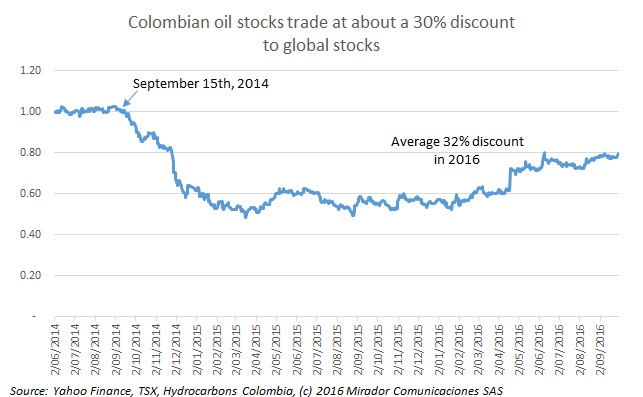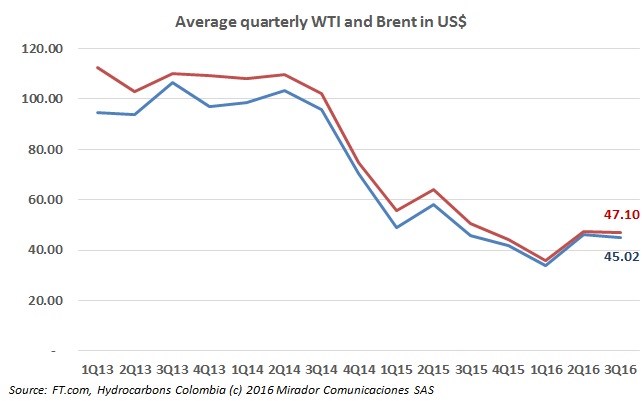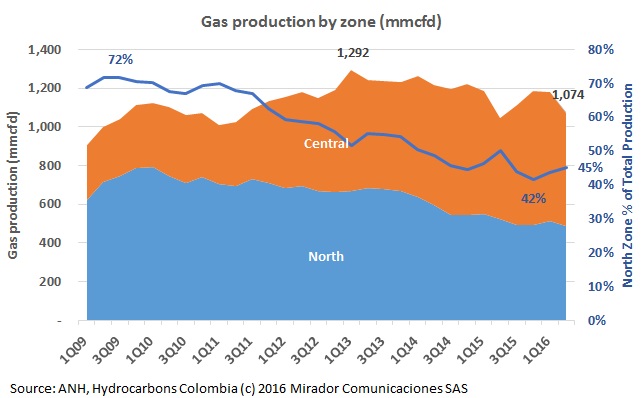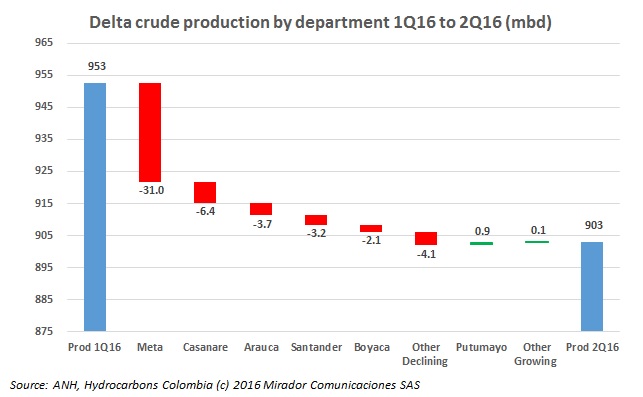“It was as if God had decided to put to the test every capacity for surprise and was keeping the inhabitants of Macondo in a permanent alteration between excitement and disappointment, doubt and revelation, to such an extreme that no one knew for certain where the limits of reality lay.”

We have updated our Colombian share price index and while the average picture looks good (see graph), that is almost entirely due to Parex (TSX:PXT).

OPEC agreed to a production reduction at their recent meetings and that inspired traders to raise prices at week’s end. That allowed our estimate of 3Q16 average prices to recover and finish essentially even with 2Q16.
Against the prognostications of the pollsters and the expectations of pundits both nationally and around the world, Colombians voted narrowly (50.25%) to reject the Santos government’s peace accords with the Farc.
Here is the third installment of Norton Rose Fulbright’s analysis of the ANH’s draft accord. We believe this could transform the regulatory framework for the industry significantly.

The National Hydrocarbons Agency (ANH) has not published detailed 2Q16 results for gas so we are unable to do a similar analysis to that we did last week for crude oil. But we can look at trends and the principal one is shown in the graph.
Here is the second installment of Norton Rose Fulbright’s analysis of the ANH’s draft accord. We believe this could transform the regulatory framework for the industry significantly. In this installment, NRF looks at Articles 5 through 9.

Our quarterly look at Ecopetrol (NYSE:EC) Line-of-Business (LoB) results usually focuses on comparatives. But the real story in 2Q16 was the increase in EBITDA from the E&P business.
We have given plenty of attention to the scope (and gaps) of the government’s “Territorial Strategy” being executed by the National Hydrocarbons Agency to mitigate community conflict.

The crude oil production decline in 2Q16 – which continued in July – was a surprise for some observers (including us unfortunately). We know the reason is the lack of development drilling which is letting natural declines dominate production.